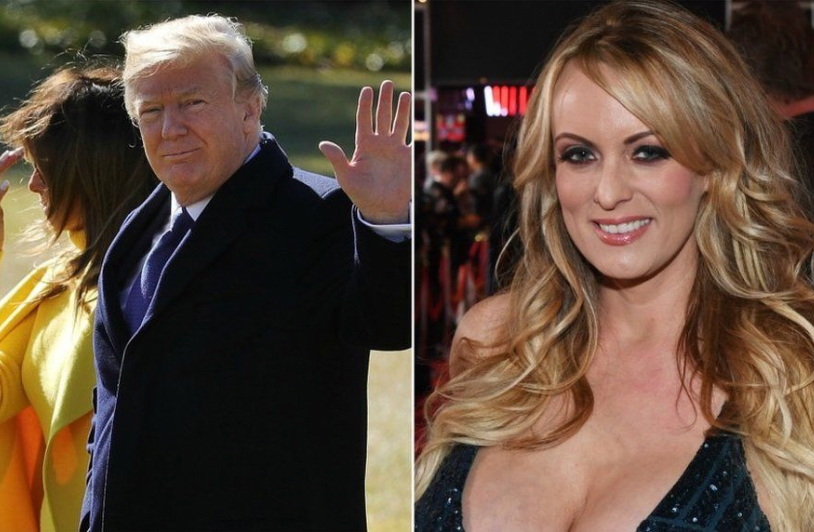Trump Trial Unearths Deep-Seated Classism and Misogyny in Response to Stormy Daniels, Hush Money Trial
Among the unfortunate, lasting sideswipes from the Donald Trump hush money trial in New York, is the resurgent class crassness we have seen in reaction to witness Stormy Daniels.
Rather than impeaching her detailed testimony or consider the nature of allegations that Trump falsified business records, the broad brush of criticism from Trump’s most ardent political defenders has depended on demeaning Daniels because she has worked in the adult film industry.
Clearly, her critics on right-leaning television shows, in various interviews and statements, all focus on some societal, sex-drenched, moral judgment about her chosen path to exotic dancing and the porn industry that drew her to make money to live.
Even in her trial descriptions of the central sex scene at a Lake Tahoe resort, Trump appeared to pressure Daniels to rise about her assigned “trailer park” life. Setting aside the legal outcomes of the trial, we have another reminder of the intransigence of misogyny and classism for a wealthy guy with power to lord it over a perceived lesser being to get what he wants. Worse, his defenders think that perfectly okay given her chosen profession.
As a woman, as a colorful character, Stormy Daniels has been singled out for abuse in the Trump world in ways that would not be aimed at men who try to face up to Trump. The criticisms we heard yesterday, for example, about former Trump fixer Michael Cohen, are all about his various instances of lying — on behalf of Trump.
The criticisms are not over how Cohen dresses or how much sex he has pursued in his life, or how he was asking for rough treatment from Trump. It’s over the story he tells, and how it flipped once Trump-appointed Justice officials let Cohen go to jail for covering for a non-indicted co-conspirator who was Trump.
Blaming Backgrounds
Whether you choose to believe Stormy Daniels’ testimony, isn’t it obvious that what should be the force of criticism is around what Trump did or didn’t do because of meeting up with Daniels, not Stormy’s chosen station in life?
He’s the one facing 34 felony counts, and beyond the legal questions, Trump is the one with a history littered with sexually predatory behaviors.
One would think that our allegedly egalitarian nation would hold such bullies in contempt, not vote for them as president. Hasn’t that been the lesson of #MeToo? Isn’t that why the prosecutions of Bill Cosby and Harvey Weinstein, among others, have marked a change in attitude?
For that matter, more broadly, have we not learned to look at our elites for the clay feet that inevitably show up? Somehow, we’re able to consider the misdeeds of an Elizabeth Holmes for fraud alone, not for a chosen role promoting diet supplements, or Samuel Bankman-Fried for crypto manipulation, not because of his upbringing.
If choosing a life as exotic dancer is not to the moral standards set by, say, The Five on Fox — Judge Jeannine Pirro decided Stormy is a sex worker — just what professions are considered sufficiently morally positive?
Whom Do We Honor?
Various polls and columns have identified the most “honorable” professions as military personnel, teachers, police and firefighters, doctors and nurses, life insurance agents, pilots. Basically, the list includes those involved in public service and education.
At the other end of the spectrum, members of Congress, car salespeople and advertising practitioners are viewed as the least ethical. Hmm. Adult film stars didn’t make that particular list.
But it is Trump who regularly belittles the judges he has faced, as well as prosecutors and lawyers. Republican leaders are insultingly critical of public schoolteachers and university educators who encourage critical thinking, and of scientists who are investigating whether the Earth faces extinction for overuse of fossil fuels.
Law enforcement figures are universally lauded until there is another racially charged death in which police found reason to pull a trigger or lean on a suspect’s neck.
How often are we seeing “public service” targeted as “the deep state,” and ridiculed rather than rewarded.
At the end of the day, we reward sports figures and business leaders, who earn the most money, more than we look for Mother Teresa figures in our midst who work for others.
There is a distinct class bias that we are translating into maintaining systems tinged with partisan politics. Is this really what we all had in mind for ourselves?




